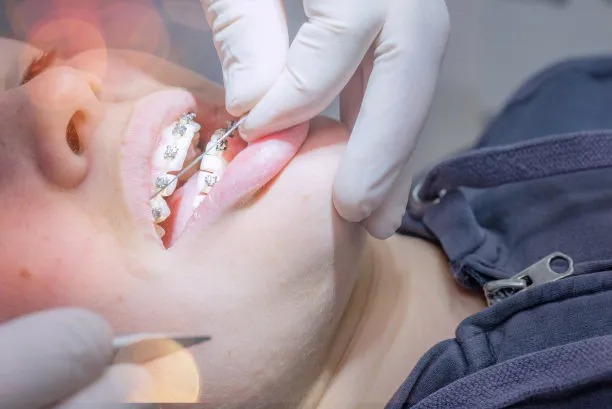Summary: Dental filling procedures are crucial for maintaining optimal oral health, especially when dealing with cavities or tooth damage. However, before undergoing such treatments, several essential tips and precautions should be considered to ensure a smooth and satisfactory experience. This article elaborates on four critical aspects: understanding the filling material options available, assessing the necessity and urgency of the procedure, maintaining open communication with your dentist, and practicing proper post-treatment care for lasting results. By paying attention to these factors, patients can maximize their treatment outcomes and contribute to their overall dental health.
1. Understanding Filling Material Options Available

Before undergoing a dental filling, it is crucial to understand the types of materials available for your specific needs. Common filling materials include amalgam, composite resin, porcelain, and gold, each having its own advantages and disadvantages. Amalgam is known for its durability but is visible, while composite resin offers aesthetic appeal but may not last as long in high-stress areas.
When selecting a filling material, consider factors such as location of the filling, personal preference, and budget. Discussing these options with your dentist can help you make an informed decision that aligns with your oral health goals. Many people prefer composite materials for fillings in front teeth due to their tooth-like appearance.
Another important consideration is potential allergies or sensitivities to certain materials. Inform your dentist of any previous adverse reactions to dental materials to avoid complications during the procedure.
2. Assessing the Necessity and Urgency of the Procedure
Evaluating the urgency and necessity of the dental filling is fundamental. Not all cavities require immediate attention; some may progress slowly without causing pain or discomfort. However, ignoring signs of decay can lead to more severe dental issues, including infections or tooth loss.
Consult your dentist for a thorough examination and recommendation on the urgency of the filling. Regular dental check-ups can help identify potential problems early, allowing for timely interventions. Its important to trust your dentists professional judgment while also voicing any concerns you may have.
Additionally, understanding the implications of procrastination can motivate individuals to prioritize their dental health. Early treatment often results in less invasive procedures, while delaying may result in root canals or extractions, which can be far more costly and time-consuming.
3. Maintaining Open Communication With Your Dentist
Effective communication with your dentist plays a significant role in the success of your dental filling procedure. Before the appointment, prepare any questions or concerns you may have regarding the procedure, including what to expect during and after. This can alleviate anxiety and create a trusting relationship with your dentist.
During the consultation, be candid about your dental history, any previous experiences, and your preferences regarding local anesthesia or sedation. If you have dental anxiety, let your dentist know so they can provide comfort measures to make the process as smooth as possible.
Lastly, post-procedure communication is equally important. If you experience discomfort or unexpected reactions after your filling, inform your dentist promptly. Open communication ensures ongoing support and can help identify any issues early on, resulting in timely interventions if necessary.
4. Practicing Proper Post-Treatment Care
Once the dental filling procedure is complete, proper post-treatment care is essential to maintain the integrity of the filling and your overall oral health. Initially, avoid eating hard or sticky foods until the local anesthesia wears off to prevent accidental injury to your mouth.
Maintaining proper dental hygiene is vital after a filling. Brush twice a day and floss regularly, paying close attention to the filled area to prevent plaque buildup. Regular visits to your dentist for cleanings and check-ups will help ensure the longevity of your filling.
Monitor the filled tooth for any changes, such as sensitivity or discomfort. If you experience persistent pain, it may indicate a need for further evaluation by your dentist. Staying vigilant about your oral health will help you enjoy the benefits of your dental filling for years to come.
Summary:
This article has explored the important tips and precautions to consider before undergoing dental filling procedures for optimal oral health. From understanding the different filling materials available to assessing the urgency of the procedure, maintaining open communication with your dentist, and ensuring proper post-treatment care, each factor contributes significantly to a satisfactory dental experience.
Taking these steps not only enhances the outcome of your dental fillings but also solidifies your commitment to maintaining excellent oral health. The more informed you are as a patient, the better your experience will be.
This article is compiled by Vickong Dental and the content is for reference only.
Vickong Dental
Vickong Dental is a large medical group established in Hong Kong in 2008 by professors from well-known medical universities in Guangdong and Hong Kong, as well as medical doctors from key national '985' universities (including Master's supervisors and senior professors). The chain of branches brings together expert dentists with PhDs and Master's degrees from Hong Kong and Mainland China, committed to providing high-quality dental treatment.
"Vickong Dental Practices the University Motto of 'Healing and Serving Society,' with a Stable Operation for Sixteen Years. It Has Been honored with Hong Kong Enterprise Leaders's Choice,' and is a Global Trusted Implant Center for the Nobel Implant System. Recommended by Hong Kong Metro Broadcast and Guangdong Television, it Serves Customers from Over Thirty Countries and Regions, Gaining the Trust and Favor of Citizens from the Guangdong-Hong Kong-Macau Greater Bay Area and Surrounding Cities.

Thousands of customers' unanimous praise
The most recognized and highly recommended dental service by customers in the Guangdong-Hong Kong-Macau Greater Bay Area
We Ensure You Receive Detailed Care and Attention Here
Hong Kong standards, Shenzhen prices, Your Trusted English-speaking dentists

Vickong Dental Medical-Grade Instrument Disinfection Process
Vickong Dental Medical-Grade Instrument Disinfection Process

Vickong Dental Chain: A Warm and Comfortable Environment for Treatment






Appointment Hours

Q&A
Why choose Vickong Dental?
Vickong Dental practices the university motto 「Medicine to Benefit Society」, with each branch bringing together highly qualified dentists with doctoral and master’s degrees from Hong Kong and the Mainland, and has maintained seventeen years of steady operation。Recipient of 「2024 Hong Kong Enterprise Leaders Brand」, 「2025 Hong Kong Enterprise Leaders Brand」, a Nobel Biocare Global Trusted Implant Center, and a brand recommended by Metro Radio Hong Kong and Guangdong TV。
To date, we have served customers from more than thirty countries and regions,earning exceptionally high word-of-mouth recognition and trusted recommendations from residents across the Guangdong-Hong Kong-Macao Greater Bay Area and surrounding cities
We have eight major branches in Zhuhai、Shenzhen,and a consultation and service assurance center in Hong Kong,so you can book a free consultation at any time for any questions,which is very reassuring.
If I do not accept the quotation after the CT scan, will I be charged??
No! As long as the actual treatment has not started, you will not be charged any fees.
Will there be any additional charges during the treatment process?
No, there won’t be any additional charges. Before treatment begins, we will clearly explain the treatment plan and its corresponding fees. Only after the patient agrees and signs the consent form will we proceed with the dental service.
Can I pay in Hong Kong dollars?
Yes. Vickong Dental accepts payment in Hong Kong dollars. The amount will be converted based on the exchange rate of the day, and the applicable rate will be clearly communicated to you in advance.
Can I reschedule my appointment at any time?
Yes. Please contact us via **WeChat** or **WhatsApp** as early as possible, providing your original appointment time and details, along with your preferred new date and time slot for rescheduling.













